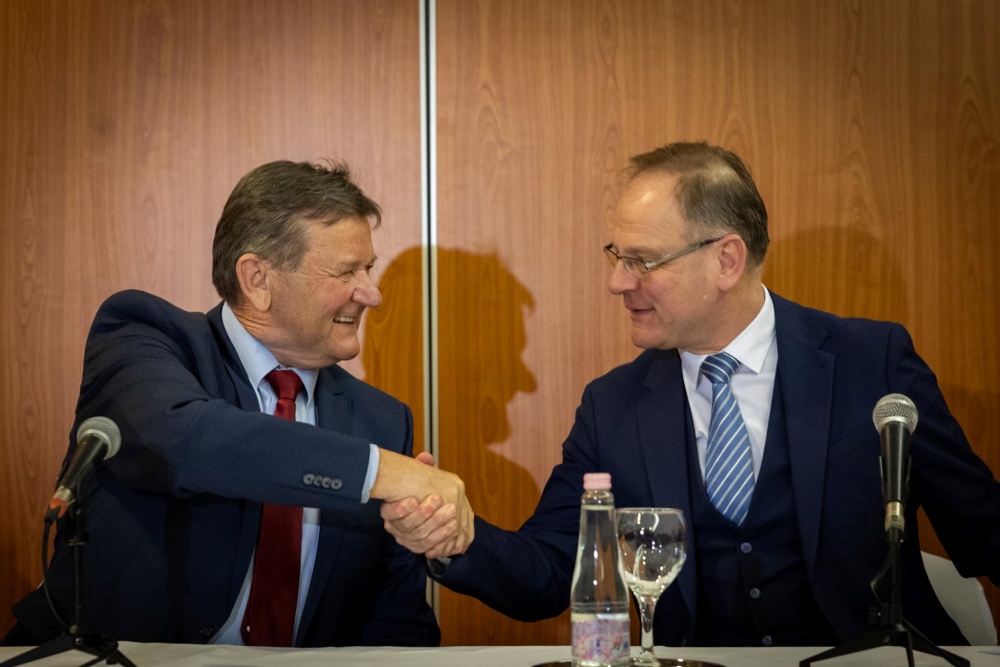
The two governments are supporting local investments and national communities living in the territory of the other country.Continue reading

The European Parliament’s Intergroup on Traditional Minorities, National Communities, and Languages has been re-established. Loránt Vincze, MEP of the Democratic Alliance of Hungarians in Romania (RMDSZ), was elected as its new chair, and Kinga Gál, Fidesz MEP, as its honorary chair.
According to information from Loránt Vincze’s press office, the continuation of the tasks of the EU working group on minorities was supported by nearly 40 MEPs from all political groups in the European Parliament. MEPs of the RMDSZ have been actively involved in the tasks of the working group since Romania’s accession to the EU in 2007, the statement said.
Kinga Gál, Fidesz MEP and vice-president of the Patriots for Europe group, who has been involved in the working group for two decades, was elected honorary chair by the proposal of Loránt Vincze.
Vincze, who is also President of the Federal Union of European Nationalities (FUEN), expressed the hope that his international experience in the field of minority protection and his network of contacts through the Minority SafePack Initiative, would help make the work of the task force even more effective.
“The European dialogue has brought useful experience and strengthens our arguments, as
it is in the interest of the Hungarians in Romania that Europe should pay attention to indigenous minorities, provide them with legal protection and support, and I will continue to work for this,”
the statement quotes Vincze.
Gál stated: “I consider the working group on national minorities, of which I am the longest serving member, to be a matter close to my heart.” She recalled that she has been chairing the working group since 2004. The politician pointed out that “despite many promises,” Europe’s traditional national and linguistic minorities still do not enjoy adequate protection in the European Union. The working group will create an opportunity to keep the protection of Hungarian communities beyond the borders on the agenda of the European institutions, she stressed.
Via MTI, Featured image: X/Vincze Lóránt